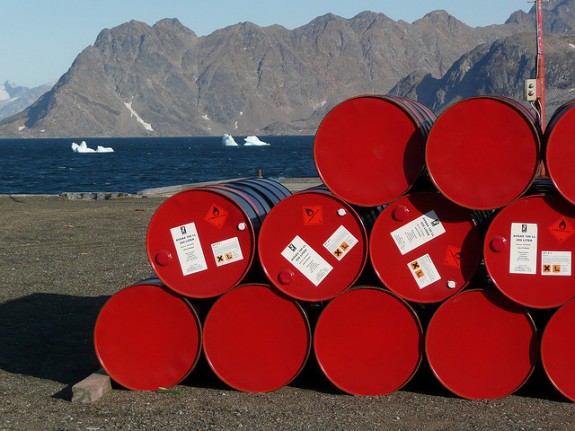Oil May Finally Be Hitting Its Peak
Oil consumption may be nearing its peak

Photo: ezjoman
In 1956, Marion King Hubbert laid out in a paper the idea of “peak oil“—that at some point in the future, the production of non-renewable resources like oil and coal would hit its highest point and then decline. Well, according to an editorial in the Economist, that time may be now. But, the Economist says, oil’s peak may have come about in a different way than Hubbert thought it would: it’s not the production of oil that’s dropping off, it’s the demand.
Hubbert originally predicted that the world’s production of oil would peak 50 years into the future, with coal following some 150 years after. The specific date of “peak oil” has shifted as new resources have been discovered, but the underlying idea has held sway among a certain set of energy wonks for decades. Here’s Hubbert explaining his idea in a 1976 presentation:
But since the oil boom got going in 1859, says the Economist, the “demand for oil has, with a couple of blips in the 1970s and 1980s, risen steadily alongside ever-increasing travel by car, plane and ship”:
Three-fifths of it ends up in fuel tanks. With billions of Chinese and Indians growing richer and itching to get behind the wheel of a car, the big oil companies, the International Energy Agency (IEA) and America’s Energy Information Administration all predict that demand will keep on rising.
But the editorial writers disagree: “We believe that they are wrong, and that oil is close to a peak.”
In the rich parts of the world, oil consumption is going down. The fracking boom pushed oil out, and increasingly fuel-efficient engines have driven demand down even more. The Economist argues that, rather than mirroring the west’s oil-heavy growth over the past century and a half, blossoming economies could jump straight into renewables.
So, just maybe, the world’s waning demand means that Hubbert’s projection will fail to peak: “That is bad news for producers, excellent for everyone else.”
More from Smithsonian.com:
/https://tf-cmsv2-smithsonianmag-media.s3.amazonaws.com/accounts/headshot/smartnews-colin-schultz-240.jpg)


/https://tf-cmsv2-smithsonianmag-media.s3.amazonaws.com/accounts/headshot/smartnews-colin-schultz-240.jpg)